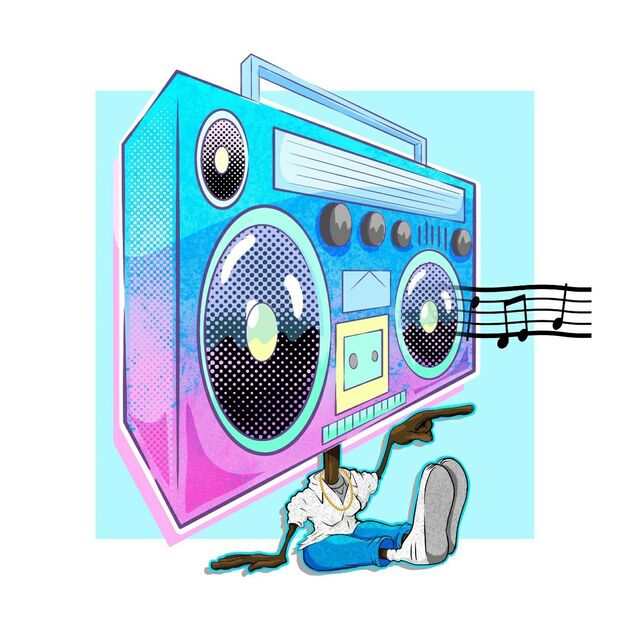Most people have heard of OCD or obsessive-compulsive disorder. It is a mental illness that causes people to experience intrusive thoughts and compulsive behaviors. However, many people don’t know about OCD Music, which is a specific type of OCD that involves obsessing over music. If you are struggling with this condition, don’t worry – you are not alone. In this blog post, we will discuss what OCD Music is, and we will also offer some tips on how to deal with it.
Contents
What Does OCD Music Mean?
 OCD music is defined as a type of music that an individual with OCD (Obsessive Compulsive Disorder) listens to in order to ease their anxiety or help them focus on a task. This type of music is usually repetitive, calming, and has little to no lyrics. It can be instrumental or have soft vocals.
OCD music is defined as a type of music that an individual with OCD (Obsessive Compulsive Disorder) listens to in order to ease their anxiety or help them focus on a task. This type of music is usually repetitive, calming, and has little to no lyrics. It can be instrumental or have soft vocals.
People with OCD music usually have a specific playlist of songs that they listen to on a regular basis. This playlist helps to soothe their anxiety and keeps them focused on what they need to do. This is often why people with OCD music prefer to listen to the same songs over and over again.
While some people may find this type of music boring, people with OCD find it comforting. It helps to keep them calm and in control. If you are struggling with OCD, consider giving it a try. It just might help you manage your anxiety and focus on what you need to do.
But, it also depends on what kind of music you choose to calm your anxiety. However, people with OCD usually find that certain types of music are more effective than others.
What Are The Signs Of OCD Music?
OCD music is a condition where a person becomes fixated on a certain song or type of music. There are some signs that may be indicative of OCD music. If you or someone you know experiences any of the following, it might be worth considering whether OCD music is a problem:
- Listening to music for hours on end without taking a break
- Being unable to focus on anything else but the music
- Feeling anxious or agitated when not listening to music
- Hearing music in your head even when there is no external source playing
- Urge to listen to certain songs or types of music over and over
- Being unable to enjoy music without needing to analyze it
These are just some of the signs that might be indicative of OCD music. If you or someone you know experiences any of these, it is important to seek professional help. The condition can be a debilitating condition, but with treatment, it is possible to live a normal and healthy life.
Moreover, OCD music deal with an extreme obsession with music. The person with OCD music might be unable to think about anything else but the music, and they might listen to the same song or type of music over and over again.
This can lead to severe anxiety and distress. If you or someone you know experiences any of these symptoms, it is important to seek professional help. OCD music can be a debilitating condition, but with treatment, it is possible to live a normal and healthy life.
What Causes OCD Music?
 The causes of OCD music are not fully understood. However, it is thought to be a combination of genetic and environmental factors. Here are some of the main theories:
The causes of OCD music are not fully understood. However, it is thought to be a combination of genetic and environmental factors. Here are some of the main theories:
Imbalance Of Certain Chemicals
OCD is believed to be caused by an imbalance of certain chemicals in the brain, such as serotonin. This theory is supported by the fact that medications that increase serotonin levels in the brain are effective in treating OCD. Moreover, people with OCD often have relatives with the disorder, suggesting a possible genetic link. This is also associated with other mental disorders, such as anxiety and depression, which are also thought to be caused by an imbalance of brain chemicals.
Stressful Life Events
Stressful life events, such as the death of a loved one or a divorce, can trigger this condition. In fact, research has shown that people with OCD are more likely to have experienced a major stressful event in their lives than people without the disorder.
There are stressful life events that can cause OCD music. In addition, people with OCD are more likely to have experienced a major stressful event in their lives than people without the disorder.
Environmental Factors
Certain life events or experiences may trigger OCD music, such as trauma or stress. For example, a person who develops OCD after a car accident may start to obsessively play music in an attempt to drown out the sound of traffic. Moreover, people who live in chaotic or unpredictable environments may be more likely to develop OCD.
So, these are some of the main theories about what causes OCD music. However, it is still not fully understood and more research is needed. Also, it is important to remember that everyone experiences OCD music differently and there is no one-size-fits-all approach to treatment.
How To Deal With OCD Music?
When you have OCD, music can be both a blessing and a curse. It can be a way to relax and escape from your worries, but it can also be a trigger for your obsessions and compulsions. If you find that music is triggering your OCD, there are some things you can do to deal with it.
Here are some tips:
Find a Balance
If you find that you are obsessively listening to music or avoiding it altogether, try to find a middle ground. And, if you are listening to music, make sure it is something that you enjoy and that doesn’t trigger your OCD. Balance is considered key when it comes to OCD and music. Moreover, if you are using music as a form of escape, it is important to find other healthy activities that can help you cope with your OCD.
Create a Safe Space
If you have OCD, listening to music in a safe space can be helpful. This could be a room in your house where you feel comfortable and relaxed. Make sure that the space is free from any potential triggers, such as items that might remind you of your obsessions. A safe space can also be a place where you can go to listen to music without having to worry about your OCD.
Choose Your Music Carefully
Be careful about the music you listen to. If a certain type of music tends to trigger your OCD, avoid it. There are many different genres and styles of music out there, so there is no need to put yourself in a situation where you are triggering your OCD. The choice of music is personal, so find what works for you and stick to it. However, the choice of music is considered the key when it comes to this disorder.
Identify and Avoid Triggers
 There are some songs or genres of music that might be more likely to trigger your OCD. If you can identify these triggers, you can avoid them. This might mean avoiding certain radio stations or songs that remind you of your obsessions. It is important to remember that everyone is different. Therefore, be aware of the songs or genres of music that tend to trigger your OCD. If possible, avoid them altogether. But, if you can’t avoid them, try to listen to them in a different way
There are some songs or genres of music that might be more likely to trigger your OCD. If you can identify these triggers, you can avoid them. This might mean avoiding certain radio stations or songs that remind you of your obsessions. It is important to remember that everyone is different. Therefore, be aware of the songs or genres of music that tend to trigger your OCD. If possible, avoid them altogether. But, if you can’t avoid them, try to listen to them in a different way
Talk to Someone Who Understands
OCD music is a very personal experience. If you are struggling to deal with it, talking to someone who understands can be helpful. This could be a friend, family member, therapist, or anyone else who can offer support and understanding. Talking to someone about your experiences can help you feel less alone and can give you some insight into how to deal with your OCD.
Seek Professional Help
Therapy is considered key when it comes to OCD. A therapist can help you understand your OCD and develop coping strategies. If you are struggling with your OCD, talking to a therapist can be very helpful. There are two types of therapy that are considered effective for OCD: exposure and response prevention (ERP) and cognitive-behavioral therapy (CBT). If you are interested in seeking professional help, talk to your doctor or mental health professional.
You can try Mantra Care for help from professionals. They provide licensed therapists that will help you to understand and manage your OCD. You can book a free consultation to get the right help you need.
Consider Taking Medication
When the situation seems out of control, medication can be an option. Medication is not a cure for OCD, but it can help to manage the symptoms. If you are considering taking medication for your OCD, talk to your doctor. There are many different types of medication that can be effective for OCD. The decision to take medication is a personal one, so make sure to talk to your doctor about the risks and benefits.
Be Patient and Positive
 It is essential to be patient when dealing with OCD. The condition can take time to manage, and it is important to be positive. Remember that there are many resources and strategies available to help you deal with your OCD. Seek professional help if you are struggling to cope. Be patient and positive, and you will eventually find a way to manage your OCD. Moreover, do not hesitate to ask for help from people who understand.
It is essential to be patient when dealing with OCD. The condition can take time to manage, and it is important to be positive. Remember that there are many resources and strategies available to help you deal with your OCD. Seek professional help if you are struggling to cope. Be patient and positive, and you will eventually find a way to manage your OCD. Moreover, do not hesitate to ask for help from people who understand.
So, these are some of the things to consider if you are struggling with OCD and music. More often than not, music can be a trigger for OCD. If you are struggling to deal with it, talk to someone who understands. Seek professional help if you feel like you can’t cope.
Be patient and positive, and you will eventually find a way to manage your OCD. Do not hesitate to ask for help from people who understand. Mantra Care can provide you with the professional help that you need to understand and manage your OCD. Book a free consultation today.
Conclusion
To conclude, OCD music can be extremely debilitating and cause a great deal of distress. However, there are ways to deal with it and ultimately lessen its hold on you. Also, if you are dealing with this, you must not forget that you are not alone. There are plenty of people out there who understand what you are going through and can offer support. Seek help if you need it, and never give up hope. It may be a part of your life, but it does not have to define you.
Therefore, if you are struggling with this obsession, don’t hesitate to ask for help. Remember, you are not alone in this battle. In fact, many people share the same struggle. Seek professional help if you feel like you can’t handle it on your own. There is no shame in admitting that you need help. OCD music is a tough opponent, but with the right treatment and support, you can conquer it.
If you have any queries regarding Online OCD Counseling experienced therapists at MantraCare can help: Book a trial OCD therapy session


